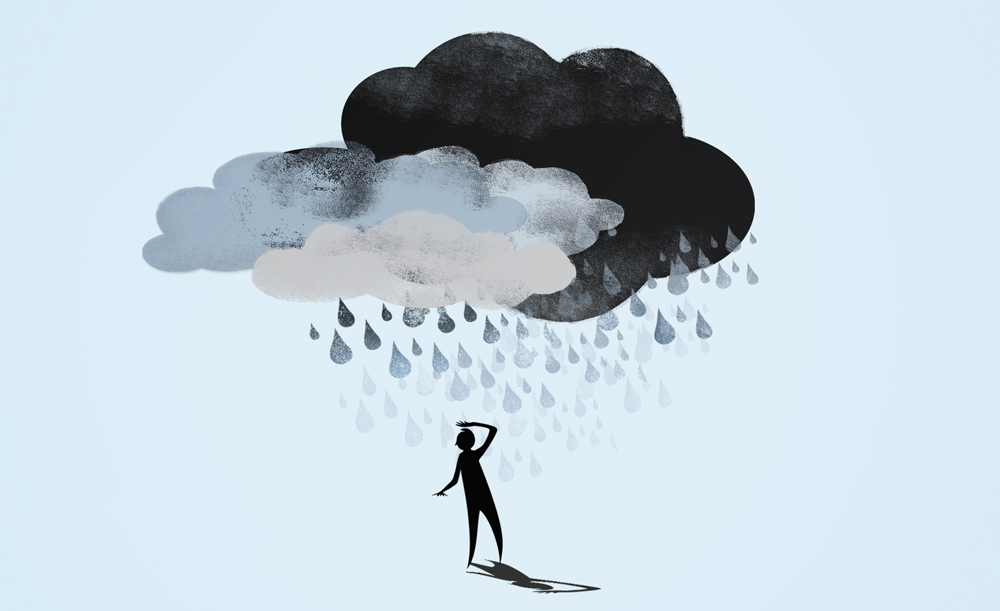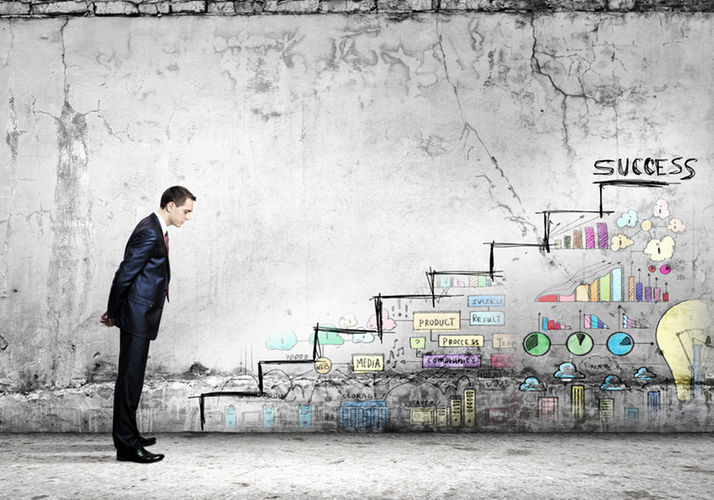There’s no cure for depression. A combination of prescribed medication and therapy can variably lessen the impact the illness has from person to person, but this is by no means a permanent solution. Clinical depression, in a much less detailed nutshell, is caused by chemical imbalances in the brain, particularly concerning serotonin and dopamine. Medication, as well as a healthy lifestyle and proper self-care, can help to regulate these chemicals, but that’s really all it can do. Now, it may feel like I’m starting this post off with a very direful mindset, but as my aim with this post is to address the realities of living with depression, I believe it’s important to be realistic and honest, as opposed to spouting motivational lies. But I promise, it isn’t as grim as it sounds.
Depression, like many other illnesses both physical and mental, is ever-present. Experts say it’s likely that at least 60 percent of those who’ve had a depressive episode will have a second, 70 percent of those who have had two episodes will have a third, and 90 percent of those who have had three will have a fourth. As the number of depressive episodes increases, so too does the likelihood of another. To clarify, depressive episodes are not the same as clinical depression as an illness – episodes refer to periods of time, lasting anywhere from days to months, in which one is suffering from depressive symptoms. In short, a multitude of depressive episodes are what make up clinical depression as a whole.
A statement from Thomas Franklin, M.D. speaks to me as being one of the most accurate representations of what depression is, anatomically speaking. He describes the illness as being biopsychosocialspiritual, meaning it oftentimes permeates every aspect of the life in one who’s suffering from it. Physical, mental, spiritual, social…depression can be informally considered an illness of any type. There is much we still don’t understand about it, and with time, research, and prayer, hopefully there will come a day where we can eradicate it altogether, but for now, we live with it as best we can.
In the Harry Potter series, according to author J.K. Rowling herself, dementors are a direct reference to clinical depression, mirroring her own experiences with it. For those who aren’t fans of Harry Potter (first off, why not?), dementors are ghostly, cloaked, disturbing creatures, who attempt to kill a person by literally sucking their soul out. Yikes. As morbid of a metaphor as this may seem, it is accurate, as those suffering from depression often have the joy “sucked out of them” by the illness, preventing them from enjoying life as much as they should. Whilst many who have depression may not claim that their soul is missing, it does seem important to note that life, the very thing that builds and strengthens our souls, is what’s being threatened by depression.
I would be remiss to sit here and claim that I know what depression is like for everyone. Every person is physically, mentally, emotionally and spiritually different, and the way depression affects each person is different in each of those ways as a result. For myself, depression is a creeping beast, ready to pounce when I least expect it. My depression is the almost eternal pessimistic attitude, and the devil on my one shoulder, though oftentimes it feels like it’s on both. My dementor ensures that only the happiest of moments can drive it away, and even so, it will oftentimes rear its ugly head after the euphoria has died down. My depression causes me to think about returning to my bed for a large chunk of the day, only to have me return to it at night, wide-eyed and worrisome for the next day.

Accepting my depression is accepting that I will never be as comfortable in social situations as many others. Very rarely will I be the one to take initiative in much of anything, and logic will oftentimes fall to the wayside as my decisions are emotionally based on trying to lessen the impact of my depression in the present, as opposed to making decisions that will help me combat it in the future.
I’ve accepted my depression. I’ve come to (relative) peace with the fact that much of my life will be spent trying to live in harmony with it. The key is realizing that it doesn’t have to govern my life. Depression, by its very nature, is a condescending acceptance, a resigned sigh that things aren’t going to get better – if anything, it says that things will get worse. That’s what depression tells me, and all else who suffer from it. This is one of the plethora of lies it will heap on whoever unwillingly listens to it, another step forward in its job to make people’s lives worse.
Whether or not you believe medication makes things better, anatomically, it does help. From our very, VERY limited knowledge of depression, we can see prescribed medications make the numbers we want to go up, up, and the ones we want to see go down, go down. I’d be lying through my teeth if I told you if I knew what all of those numbers are, but from my own research and personal experience with psychiatrists, serotonin and dopamine are the two golden chemicals in this this regard. Our brains need certain amounts of each one of these to make us happy. Regulating these chemicals is key to combating clinical depression.
As any good doctor will tell you, though, popping a few pills isn’t nearly enough to avoid recurring depressive episodes. Having good mental health is a full-time job, and it includes balancing all aspects of your life. Depression makes this even harder, though, as the very likelihood of its existence is based on inadequate mental health management. This is why I cannot stress enough: if you need help, ask for it. Although the stigma surrounding asking for help has been dying over the past few years, there is still a strong mindset out there that believes asking for help is a sign of weakness. We’ve all seen the movies where the stubborn husband on a road trip refuses to ask a local for help because “real men don’t ask for directions.” Don’t be that person. Real men and women aren’t afraid to admit their hindrances, because they realize everyone has their own.
Notice I didn’t say “admit their faults,” there, as depression isn’t a fault, just like it isn’t your fault it you’re suffering from chicken pox. You clearly didn’t pick your genes out and say, “Ooh, depression? That sounds fun!” It’s not your fault, nor is it a fault in character. It’s an unfortunate character trait to have, sure, but that doesn’t make you worth any less. It’s a part of your life, and the sooner you accept that, the sooner you can learn to live with it, if not harmoniously, at least tolerably.
As with many posts I don’t sit down and plan out beforehand, this was a little all over the place, and for that I apologize. If there’s any one thing I’m trying to get across here, it’s to show how those who have depression can view the world, and broadly explaining how I believe the illness can be dealt with. Sure, there’s no cure for depression, but there are ways to live with it, and decrease the chances of its return once it lessens. There’s help everywhere, all you have to do is ask.
Stay strong.
– Ryan








